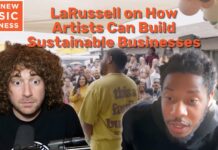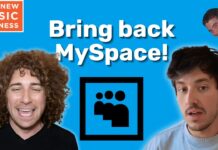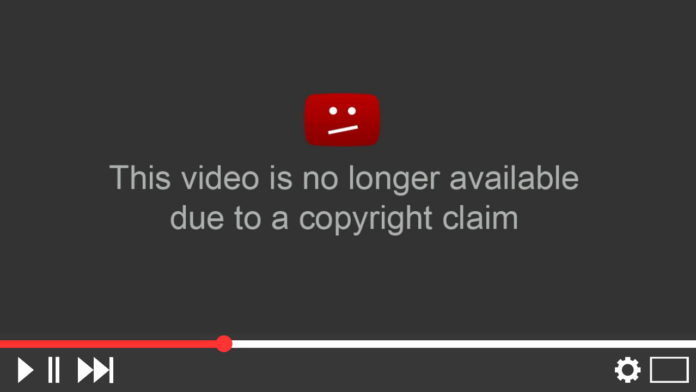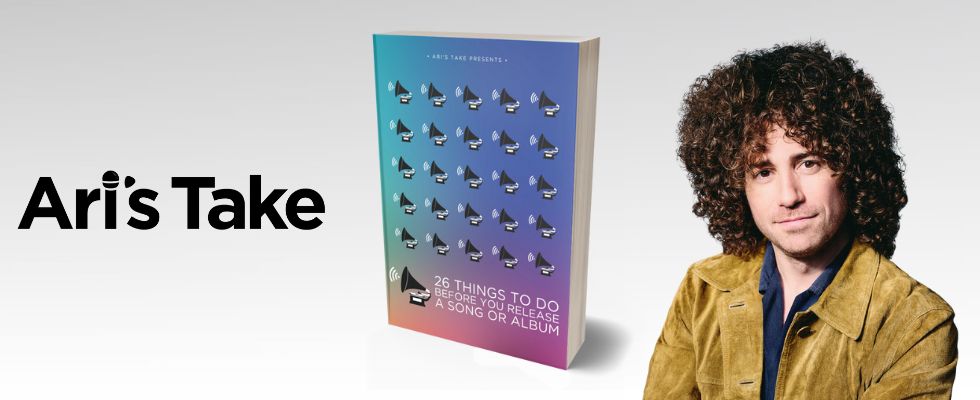It seems that if labels and publishers can’t make their money legitimately (exploiting the copyrights they actually represent) they’ll just go and grab some money from indie artists instead.
Because, why not? They can. They do. They will. And indie artists have very little recourse.
YouTube and the major labels and publishers are in cahoots. YouTube knows its Content ID claiming system is far from perfect, but it’s the best we, as an industry, got right now. And the majors have entire departments that work to make sure their music is claimed (and paid). Not to mention the RIAA (the org that represents the major labels) and the NMPA (the org that represents the major publishers) issue takedown notices to platforms that haven’t paid them off yet. More on this in a minute.
That’s the thing, technically every video with music on YouTube, Facebook and Instagram (for the most part) is illegal – even though micro licensing deals have been struck with most labels and publishers.
The laws of the land have not caught up with technology. The last major update to copyright law was in 1998 – when the internet was for Craigslist and porn.
“Micro licensing,” as it has come to be known, is when songs get licensed for user generated content (UGC) found most prominently on YouTube, Facebook, Instagram, TikTok, Twitter, and the rest.
Technically, the law states that every sync placement (when music is synchronized to picture) needs the clearance of the master owner (the label / artist) and the publishing owner (publisher / songwriter). Obviously, no one gets permission when they pop music onto their videos and upload them to YouTube et al, so the labels and publishers had to get creative with the tech platforms with how to allow this (get paid for this).
+How To Get a Sync Agent and Your Music on TV and in Film
It’s been this vicious cycle over the past 15 years between Big Tech and Big Music. Big Tech launches a platform that uses music, doesn’t figure out licenses, and then gets sued by Big Music. It’s the “it’s better to ask for forgiveness than permission” mantra. Except Big Music ain’t that forgiving.
The law states (in the 1998 Digital Millennium Copyright Act) that rights owners can issue a takedown notice to the platform and the platform has to comply.
People call this “DMCA takedown” for short. There is a “three strikes” clause in this law where the user who uploaded this (illegal) content gets three strikes and then the platform, by law, must boot them.
This actually works out to be, more times than not, grandmas uploading a family BBQ home video where Adele is playing on the bluetooth speakers in the background while little Annie and Timmy chase Baxter around the grill. BOOM! Copyright strike! Bad grandma! Bad!
Early on in the days of YouTube, Big Music would require YouTube to remove the video – or strip the audio from the video.
Big Music realized this was dumb and unsustainable (for one, it was great promotion for the song – kind of like music videos playing in bars in the 90s – and two, there was a lot of money to be made). So now instead of issuing a DMCA takedown notice they just ask the platforms to pay them.
YouTube was the first to figure out a way to pay Big Music through their Content ID – after a bunch of lawsuits and YouTube paying a hefty advance to Big Music (have you seen anything from that? I haven’t).
A few years back, Big Music was issuing a TON of takedown notices to Facebook – mostly for indie artists posting cover videos or grandmas posting family BBQ videos.
Big Music had every legal right to do this. Their play was to scare these unknowing users so much with copyright notices and threats to disable their accounts that the users would cry out and get Facebook to pay off Big Music to let them use their music.
That’s exactly what happened.
Facebook paid a HUGE sum of money to Big Music – for which Big Music of course did not pass onto their artists.
So now Big Music doesn’t issue takedown notices to Facebook or Instagram anymore because they’re technically “licensed”. We haven’t seen these deals because everyone is bound by NDAs but I haven’t seen a dime from these payoffs (bribes). Have you?
A few months back I got into it with the hit songwriter / podcast host Ross Golan when he was railing against Twitch for refusing to strike a deal with Big Music. (For the record, I LOVE Ross’ podcast “And the Write Is…” and admire him tremendously as a songwriter and advocate. This was just respectful discourse).
View this post on Instagram
See, Twitch is one of the few areas where indie artists were actually able to make a living during the pandemic.
When live music revenue dried up, indie artists and DJs turned to Twitch and took their concerts online. Because there are so many monetization possibilities, artists were seeing a lot of revenue from this – and it was getting them through this challenging time.
+Twitch VP of Music: $50K+/yr Only Takes 183 Fans
But Big Music wanted their payday (which, again, they weren’t going to pass along to artists), so they railed against Twitch demanding a payoff. No update yet on how that’s going. Ross’ argument was that songwriters should be paid for their work. I, of course, 100% agree! However, the fact of the matter is, by and large songwriters are NOT paid for their work even when these platforms get ‘licensed’ by the majors. Because there aren’t real mechanisms in place to get the artists paid – just the labels and publishers.
+Songwriters Just Got A Raise! How To Get Your Money
Again, I ask every songwriter and artist out there – have you seen anything from the Facebook bribe?
Go ahead and ask your publisher and label to show you the reports. How much from the many millions of dollars Facebook bribed Big Music to go away have you seen?
The argument by many in Big Music is also that by striking these deals, the tech platform must put into place tracking and monetization tech (like Content ID). Well, we can see what happens there.
Back to YouTube. The first (and only?) platform that has some kind of Content ID in place.
If you’re unfamiliar with what Content ID is, it’s their own sonic recognition technology that scans every video on YouTube for copyrighted material.
If they find it (cross referenced from data and audio files labels and publishers have sent them), they will issue a Copyright Claim on the video. YouTube will then pop ads on the video and payout the “rights holders” who claimed the content.
Only problem? This technology ain’t that good. Sure, it catches a lot, but it also adds claimants that have absolutely nothing to do with the song. And if there’s no dispute (because who disputes these claims really?), they get paid. Do I smell a class-action lawsuit?
This just happened to a video I uploaded for my new funk project Brassroots District.
We recorded a song, live in the studio, and popped it on YouTube (still Unlisted but, have a go at it below until we make it public).
The song is 100% written by me and the recording is 100% owned by me (not even distributed publicly). The only place this recording exists is on this video. No samples have been used. Literally every sound in this video was created live, on the spot, in this studio.
So how is it possible that this video was claimed by:
- LatinAuthor
- LatinAuthorPerf
- Songtrust
- UMPG Publishing
- Kobalt Music Publishing
- Concord Music Publishing

Seriously, YouTube, this is not rhetorical. How did this happen?
Now that YouTube is monetizing virtually every video – regardless if the creator of that video owns 100% of the content and is enabled for monetization or not – it’s to the benefit of Big Music to claim virtually everything than can.
I recently had Create Music Group’s co-founder and COO, Alexandre Williams on the New Music Business podcast.
+Album Release Strategy, Hot 100 Hit, From Create Music Group
He discussed how they have been able to track down around $100 million in unclaimed revenue – much of that coming from YouTube.
But most artists don’t have someone going to bat for them – navigating the complicated and scary process of disputing YouTube Content ID claims.

There isn’t much of a penalty for falsely issuing claims on videos these “rights holders” don’t represent.
Meaning Universal Music Publishing Group can simply issue a claim for EVERY video uploaded to YouTube and if disputed, do nothing, and let the claim expire after 30 days. No downside for them. But a TON of upside. If the video goes viral they could make a lot of money. The video doesn’t even have to go viral, realistically, they just need to do this to enough videos that make a little money. It adds up quickly.
I’m all for “rights holders” getting paid. Well, really, I’m all for musicians and songwriters getting paid. If the labels didn’t time and time again employ slimy tactics like this to get themselves paid, I may feel a bit more for them when they fight Big Tech and pretend like it’s on behalf of musicians. Because y’all ain’t fooling anyone.
It’s time that Big Tech works with artists and songwriters to find solutions.
We’re happy to work with you. We own our music. There are more of us. And we’re gaining market share rapidly.
So, next time, Big Tech, instead of bribing Big Music to go away, why not work out a solution that is fair for musicians? You have some of the brightest minds in the world at your companies. Y’all can figure it out. And if you can’t, I’m an email away.

















